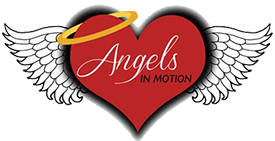Provide testing, resources and information for reducing the risk of HIV and Hep C and other harm from drug use and providing linkage for medical, legal and social services. We also provide Overdose Prevention Training and Narcan to a population vulnerable for overdose.
Overdose Prevention Training & Narcan
Certified Recovery Services (CRS)
We provide referrals to drug treatment, inpatient as well as outpatient, resources to supportive housing, we provide information for scholarships for recovery houses to assist people until they get back on their feet, and non-judgmental supportive services for those figuring out their road to recovery. We offer support and guidance to all.
Snack Bags
We deliver over 2,000 nonperishable snack bags to individuals in different communities across Philadelphia monthly. These bags are usually our first line of communication. They are filled with a juice, snacks and an informational flyer with resources and AIM’s phone number.
The Value of Syringe Service Programs
While syringe services programs provide sterile syringes free of charge, they also provide other much needed services such as:
- screening for HIV and Hep C,
- education for safer injection practices
- wound care,
- referrals to treatment for Substance Use Disorders (SUD),
- contraceptive access,
- safe disposal of used needles
- health care & other referral services.
Syringe services programs can also provide an important route to Narcan (Naloxone) and training to an at-risk population.
Distributing Narcan and educating the community about overdose prevention has been shown to reduce overdose death
Safe Injection Practices:
Outbreaks of HIV and Hep C among individuals in the United States identified a need to define and reinforce safe injection practices.
- Cleaning your hands first is the best and easiest way to prevent the spread of microorganisms
- Disinfect skin, wipe the area from the center of the injection site working outwards with an alcohol wipe
- Syringes should be new and sterile, they are single-use items; they should not be reused ever
- All supplies should be new, never re-used
- Injections should be prepared in a clean area
- Locate a vein of good size that is visible, straight and clear, without tourniquet, if possible
- Bevel should always be facing up so you don’t seal the needle closed
- Safest place to inject is in the forearm
- Apply the tourniquet about 4–5 finger widths above the injection site
- Enter the vein swiftly at a 30 degree angle or less, and continue to introduce the needle along the vein at the easiest angle of entry
- Release the tourniquet BEFORE withdrawing the needle
- Withdraw the syringe gently and apply gentle pressure to the site with a clean gauze or cotton ball.
- Discard syringe immediately into a sharps container or needle box.
What is Harm Reduction?
Accepting people where they are.
Reducing the harm associated with certain behaviors.
Knowing and accepting everyone’s path is different and so is everyone’s recovery.
Support, love and understanding not judgement
Never use alone, buddy up
NOT Clean vs. Dirty – Say “in recovery” or “actively using”
NOT Dirty Urine – Say positive or negative urine
Junky, drug seeker, abuser – are terms that are demeaning as well.
Habit/Drug Habit – Addiction is not a habit, it is a disorder.
Addict
As an addict there is a forum to self-identify, like in the rooms. We need to change society’s pre-conceived notion of someone with Substance Use Disorder (SUD). We do not want society to associate anyone with SUD with the negative image certain words carry.

